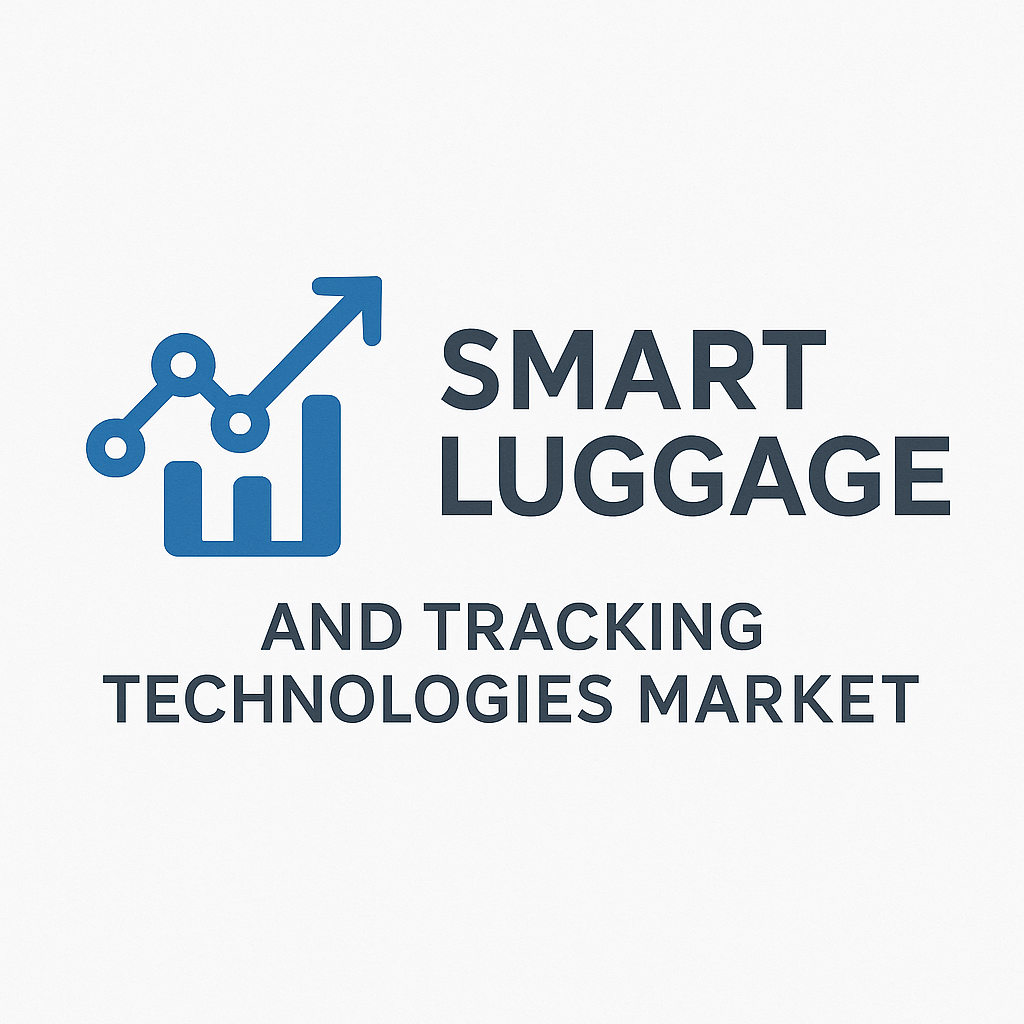Smart Luggage and Tracking Technologies Market Overview
The Smart Luggage and Tracking Technologies Market is evolving rapidly, driven by the integration of IoT (Internet of Things), increasing traveler awareness, and technological advancements in consumer electronics. In 2024, the global smart luggage market is estimated to be valued at approximately USD 2.8 billion, and it is projected to grow at a CAGR of around 17–20% over the next 5–10 years, potentially reaching USD 10 billion by 2032. This exponential growth is fueled by rising international travel, increasing airline baggage mishandling incidents, and the demand for convenience and enhanced security.
Smart luggage is essentially embedded with technologies like GPS, RFID, Bluetooth, and biometric locks to enable real-time tracking, weight detection, remote locking/unlocking, USB charging, and proximity alerts. These features enhance user convenience, reduce travel-related stress, and improve overall baggage safety. A growing millennial and Gen Z population, increasingly reliant on digital solutions and personalization, is actively seeking smarter travel gear.
Moreover, the proliferation of low-cost airlines and the enforcement of strict baggage rules have prompted travelers to seek smarter ways to manage and track their belongings. Integration with mobile applications for location alerts and smart notifications has become a standard. Trends such as AI-powered travel assistants, solar charging panels, voice-enabled features, and modular luggage designs are becoming more common in newer smart luggage offerings.
However, regulatory challenges, such as restrictions on lithium batteries by airlines and varying international standards, may hinder widespread adoption. Nevertheless, the industry is responding by innovating around battery-free smart solutions or detachable battery systems. Looking ahead, the market is poised for significant innovation, especially with the development of advanced tracking platforms using satellite-based communication, enhanced anti-theft mechanisms, and predictive analytics for baggage handling.
Smart Luggage and Tracking Technologies Market Segmentation
1. By Technology
-
GPS-enabled Tracking
GPS-based smart luggage allows users to pinpoint the exact location of their bags via satellite. This is particularly beneficial in international travel where mobile networks are limited. GPS tracking has seen high adoption in premium luggage segments due to its accuracy and global coverage. These systems are often integrated with mobile applications that alert users if the luggage leaves a predefined geofence area. However, their higher cost and dependency on battery life are some limiting factors. GPS smart luggage appeals especially to frequent flyers and business travelers who prioritize security and control. -
Bluetooth-enabled Tracking
Bluetooth-based tracking is more prevalent in mid-range smart luggage, offering short-range tracking (typically within 100 feet). These systems pair with smartphones to offer proximity alerts when luggage is nearby or left behind. They are affordable and energy-efficient, making them ideal for casual travelers and domestic journeys. However, limited range and interference in crowded areas can affect performance. The increasing use of Bluetooth 5.0 and mesh technology is enhancing the reliability and scalability of these systems, allowing connectivity with other smart travel devices. -
RFID (Radio Frequency Identification)
RFID technology allows contactless data exchange and is predominantly used for baggage handling at airports. Tags embedded in luggage can be scanned by airport infrastructure, reducing baggage loss incidents. This method offers passive tracking but lacks real-time location updates unless paired with a cloud-based monitoring system. RFID is gaining ground in enterprise and institutional travel, such as group tours and MICE (Meetings, Incentives, Conferences, and Exhibitions), where efficient baggage management is crucial. Integration with blockchain for secure tagging is an emerging trend. -
Wi-Fi and Cellular-Enabled Luggage
Some high-end smart luggage systems include cellular and Wi-Fi modules for seamless data transmission across networks. These enable two-way communication with apps, firmware updates, and cloud connectivity. Such systems can offer location updates even in remote areas and support anti-theft alerts. The cost of data usage and power consumption remains a challenge, but partnerships with telecom providers are helping offer bundled global roaming packages. These models are especially useful for digital nomads and global travelers who need persistent connectivity.
2. By Luggage Type
-
Carry-on Smart Luggage
Carry-on smart luggage is the most widely adopted due to airline regulations, traveler preferences, and mobility advantages. Features like USB charging ports, proximity sensors, and weight sensors are common. They cater to both business and leisure travelers who prefer cabin baggage to avoid baggage claim delays. These suitcases often integrate app-controlled locks and offer compatibility with airline policies through removable batteries. The segment continues to evolve with compact, lightweight designs that maximize storage while complying with cabin size restrictions. -
Checked Smart Luggage
Though less common than carry-ons, smart checked luggage is gaining traction in the premium travel segment. Enhanced GPS tracking, biometric access, and tamper alerts make them attractive for high-value content transport. Since these are more prone to mishandling by airlines, integrated tracking provides peace of mind to users. The challenge remains in terms of battery compliance with airline standards, leading to innovation in battery-less or solar-powered alternatives. They are increasingly used in intercontinental travel and corporate relocations. -
Duffel Bags and Backpacks
Smart backpacks and duffel bags, equipped with location tracking, anti-theft zippers, and integrated power banks, are popular among younger travelers, commuters, and digital nomads. These bags often feature RFID-blocking compartments, Bluetooth trackers, and hidden USB ports. Their portability and urban appeal make them ideal for short business trips or weekend getaways. The market is seeing increasing innovation around modular add-ons and wearables integration, like smart shoulder straps with biometric sensors or digital assistant access. -
Specialty Smart Luggage (Kids, Pets, Musical Instruments)
Niche segments are emerging where smart luggage is designed specifically for children (with ride-on features and tracking for parental control), pets (temperature sensors and ventilation monitoring), and musical instruments (impact detection). These are gaining popularity among family travelers and professional performers. Integration with parental apps, animal welfare sensors, and alert systems for fragile content is improving their usability. Although a smaller market, specialty smart luggage has strong growth potential due to customization and unmet consumer needs.

